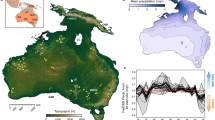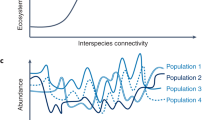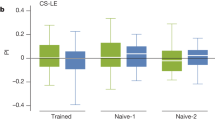Abstract
Two theories, which I shall call the ‘rate of living’ and the ‘threshold’ theories, have been suggested to explain the fact that poikilothermous animals live longer at low than at high temperatures. In this communication these theories are explained, and an experiment described which decisively contradicts the rate of living theory.
This is a preview of subscription content, access via your institution
Access options
Subscribe to this journal
Receive 51 print issues and online access
$199.00 per year
only $3.90 per issue
Buy this article
- Purchase on Springer Link
- Instant access to full article PDF
Prices may be subject to local taxes which are calculated during checkout
Similar content being viewed by others
References
Pearl, R., The Rate of Living (London, 1928).
Shaw, R. F., and Bercaw, B. L., Nature, 196, 454 (1962).
Maynard Smith, J., J. Exp. Biol., 35, 832 (1958).
Clarke, J. M., and Maynard Smith, J., Nature, 190, 1027 (1961).
Clarke, J. M., and Maynard Smith, J., J. Exp. Biol., 38, 679 (1961).
Strehler, B. L., Time, Cells and Aging (New York, 1962).
Author information
Authors and Affiliations
Rights and permissions
About this article
Cite this article
SMITH, J. Temperature and the Rate of Ageing in Poikilotherms. Nature 199, 400–402 (1963). https://doi.org/10.1038/199400a0
Issue Date:
DOI: https://doi.org/10.1038/199400a0
This article is cited by
-
Brain aging and garbage cleaning
Seminars in Immunopathology (2020)
-
Ammonia, respiration, and longevity in nematodes: insights on metabolic regulation of life span from temporal rescaling
AGE (2000)
-
The free radical hypothesis of aging: An appraisal of the current status
Aging Clinical and Experimental Research (1993)
Comments
By submitting a comment you agree to abide by our Terms and Community Guidelines. If you find something abusive or that does not comply with our terms or guidelines please flag it as inappropriate.



